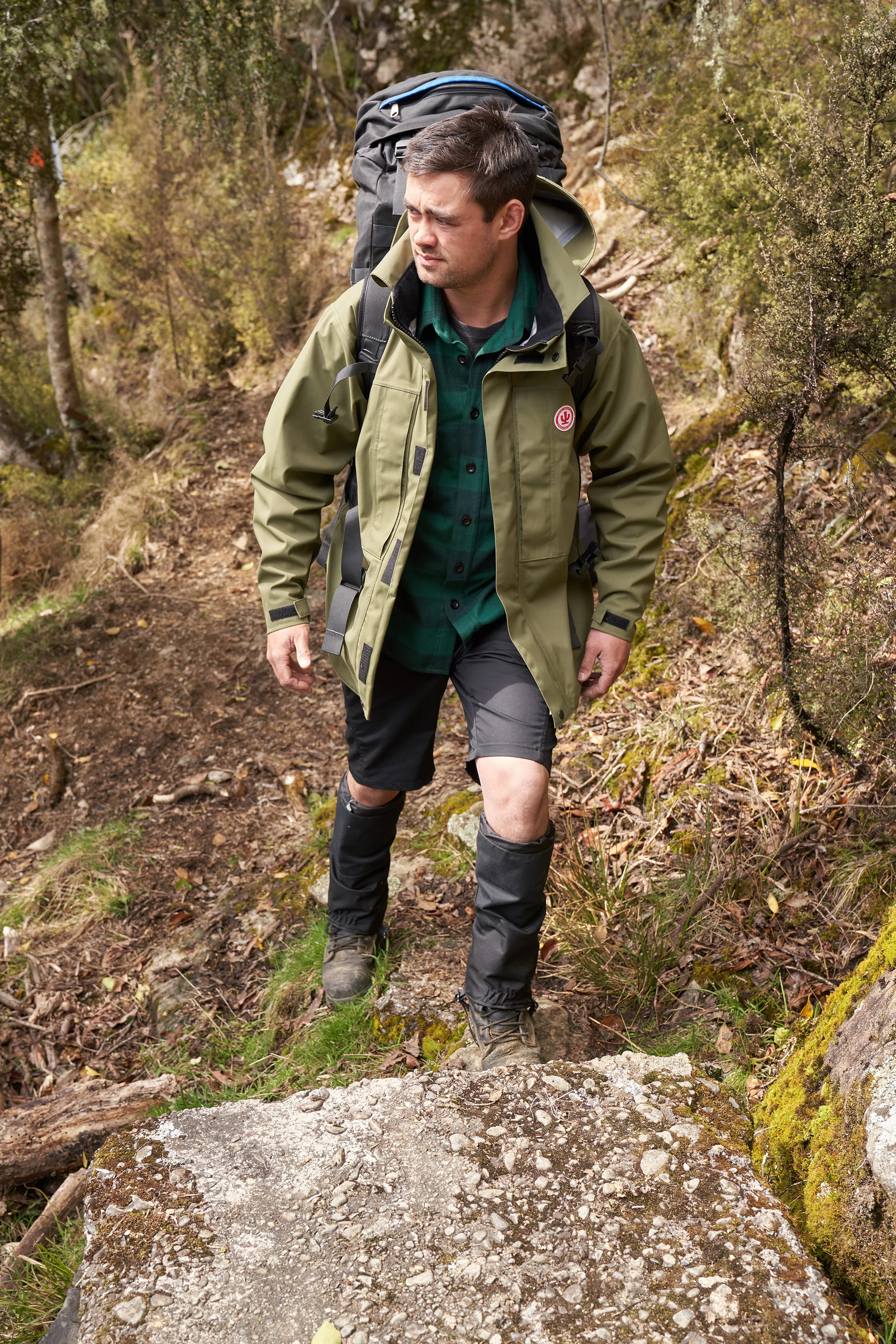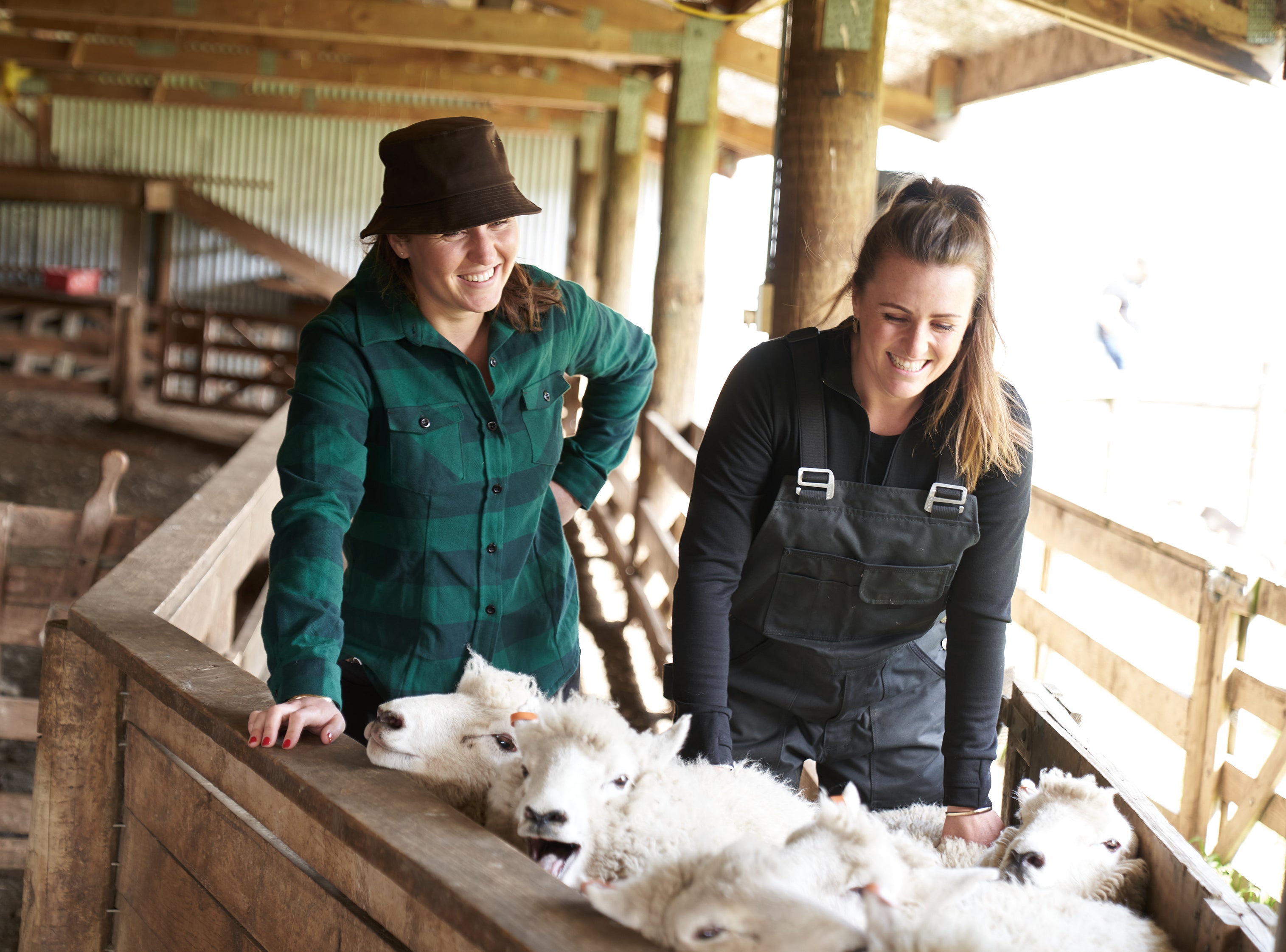We’re about to sound like massive know-it-alls, but just hear us out… we promise we’ve done our research. Historically, Cactus hasn’t been big on blinding our customers with science – rather we let the epic durability and functionality of our products do the talking. Unfortunately, when it comes to face mask filters, it's what you can’t see that matters – the technical balance points between filtration (so those pesky bacteria and viruses don’t get in) and breathability (so it doesn’t asphyxiate you!). So, in this instance, we’re going to get down in the weeds a bit.
By now, you probably know that natural fibres are the way to go when it comes to effective face mask filtration and breathability. The rough texture of natural fibres collect more particles than their smooth synthetic cousins without compromising a healthy and comfortable airflow.

Who would have thought that wool from the humble merino sheep would make a fantastic (and, might we add, natural, biodegradable and not made with dead dinosaurs) material for facemask filters – but what about the structure of the filter? If people are just using materials they find lying around their home, why do we need an actual filter?
When it comes to typical household fabrics, you’ll find two types – woven and knitted.
Woven materials are made by criss-crossing multiple sets of yarn into a grid pattern. When held up to the light, a very tightly woven fabric will let almost no visible light through it’s holes. Think about a pair of denim jeans, a canvas tent or a towel.
Knitted materials are made by continuously looping a single yarn into a braided pattern. When held up to the light, even the tightest knit will still let some light through. Think about a woolly scarf, a basic cotton tee or a merino top.

The logical rule with particle filtration is: the harder to breathe through, the more effective. With that logic, are knitted or woven materials going to be better at filtering out the nasties?
Definitely woven. I wouldn’t trust the knitted scarf my granny made me to filter out a fly let alone a COVID-19 particle.
Social enterprise, Smart Air, tested what household materials could be made into effective facemasks. They tested household materials against size 0.3 micron particles (about the same size as COVID-19 particles):

The results were skewed in favour of woven fabrics. The light scarf and the cotton t-shirt (both typically made from knit fabrics) filtered a tiny 3% of the particles. The super thick canvas (a woven material) was much more effective with 49% of particles being filtered.
But, these still aren’t great odds... and we’re forgetting about the other important thing that makes a face mask effective - breathability.
Although tightly woven fabrics such as canvas have great filtration ability, they’re SUPER hard to breathe through. Imagine walking around with a piece of Cactus Ultra C-Canvas stuck to your face?
Poor breathability is not only bad because humans need oxygen to live, but it also makes the mask far less effective overall. When you try to breathe, the particles take the path of less resistance to your mouth and go around the edges of the mask, and actually make you breath deeper and therefore more likely to inhale the particles in the air.
So, what about the materials at the top of that graph from Smart Air?
Coffee filters, HEPA filters and surgical masks were the most successful in the study. These items aren’t made from woven or knit materials - these have been specifically designed for filtration and are therefore different once again.
So basically, trust the professionals. It’s all about using natural materials, but in the right way.
We think we’ve nailed this with our innovative Cactus Face Mask filter. Natural merino fibres are layered specifically to maximise filtration and breathability, before being placed inside a soft, 100% cotton outer with an adjustable nose wire to stop particles from entering from the sides. The golden ticket.






